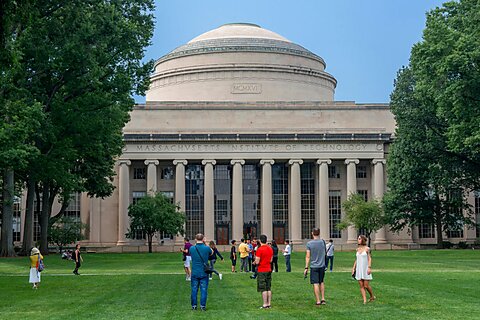Kayla Susalla
As fear over the Chinese government continues to permeate Washington, overseas research partnerships have spurred angst amongst many politicians. The House Committee on Education and the Workforce recently investigated research centers run jointly by American and Chinese universities, analyzing open-source research conducted by Tsinghua-Berkley Shenzhen Institute, Georgia Tech Shenzhen Institute, and Sichuan University-Pittsburgh Institute. The Institutes are funded in part by federal grants and the Chinese government. The report detailed many concerns about the partnerships, including the lack of foreign funding reporting under the Higher Education Act, the potential for the Chinese government to influence research outcomes, US researchers collaborating with Chinese universities affiliated with blacklisted companies, and the People’s Liberation Army using the research to achieve military objectives.
While it is necessary to protect against potentially sensitive information getting into the wrong hands, stifling international collaboration could result in stagnation in areas of interest to the United States.
To address anxieties over the Chinese government maliciously interfering with US government-funded research, House legislators introduced the Defending Education Transparency and Ending Rogue Regimes Engaging in Nefarious Transactions (DETERRENT) Act. Key components of the bill include lowering the required amount for foreign gift and contract reporting from $250,000 to $50,000 and prohibiting universities from entering contracts with a “foreign country of concern” unless a waiver is obtained.
Considering the anecdotes of intellectual property theft and espionage, the reflex to create additional barriers is understandable. Still, Chinese acts of espionage are thankfully rare, and empirical evidence, not anecdotes, is what drives sound public policy. Given the likely limited scale of malicious activity carried out by international actors, placing major restrictions on university research could be unnecessary in most cases and disadvantageous for US development.
Under former President Donald Trump’s China Initiative, which aimed to oust potential Chinese national security threats, MIT professor and Chinese immigrant Gang Chen was charged with espionage for allegedly failing to disclose contracts, appointments, and awards from various entities in China to the US Department of Energy. Chen’s research focuses on heat transfer, energy conversion, nanotechnology, and clean water, and he has helped develop a new material that makes solar heat collection more affordable.
MIT faculty wrote a letter in support of Chen, debunking the wide-reaching charges, and the Department of Justice dismissed them, admitting the burden of proof could not be met. Chen’s case highlights how innocent scholars attempting to make valuable contributions to research potentially beneficial to all people, including Americans, can get swept up in US-China tensions.
Additionally, Chinese immigrants account for 30 percent of international students enrolled in STEM degrees, and they are over twice as likely to have a professional degree as US-born Americans, making significant contributions to American institutions. One report found that 47.3 percent of Chinese students continued to donate to a US university after graduation, and a majority of Chinese students reported attending a US university for more freedom in their area of study and career.
Policymakers should prioritize creating and maintaining accessible pathways for talented individuals to research, live, and work in the US to maintain a competitive international advantage.
The Education and Workforce Committee expresses concerns about open-source data, which allow all citizens, regardless of country of residence and government affiliation, to utilize research outcomes. Even if Chinese nationals were not part of conducting such research, they would be able to utilize its products. Research exclusively or mainly for defense should be shielded by government classification, secure storage, and other precautions, blocking the possibility of Chinese involvement from the start. Importantly, all of the technology referenced in the report has non-defense-related applications.
For research without clear defense applications or intent, it can be difficult to predict what might have national security implications. That could be a risk worth taking: Working with Chinese citizens could produce mutually beneficial outcomes and help form diplomatic and social ties that aid in moderating US and China tensions.
Still, incorporating blacklisted companies implicated in human rights abuses and intellectual property theft deserves serious consideration. Informed decision-making is crucial when contemplating academic partnerships, and blacklists from the Commerce Department should be taken into consideration when entering contracts. Again, however, the products of unclassified, publicly available research would be accessible to these companies whether they were affiliated with the Chinese universities in question or not.
The purpose of research is to create new knowledge and understanding, and it is impossible to predict the outcomes. Policymakers should recognize the benefits Americans could reap before constraining research and development partnerships with China, and any other country deemed a concern. In cases where bolstering defense capabilities is the primary purpose of research, the US should classify it in the initial stages, prohibiting sensitive information from being shared with possible adversaries. Overall, creating blanket bureaucratic barriers to liberalizing ideas could be self-defeating.

